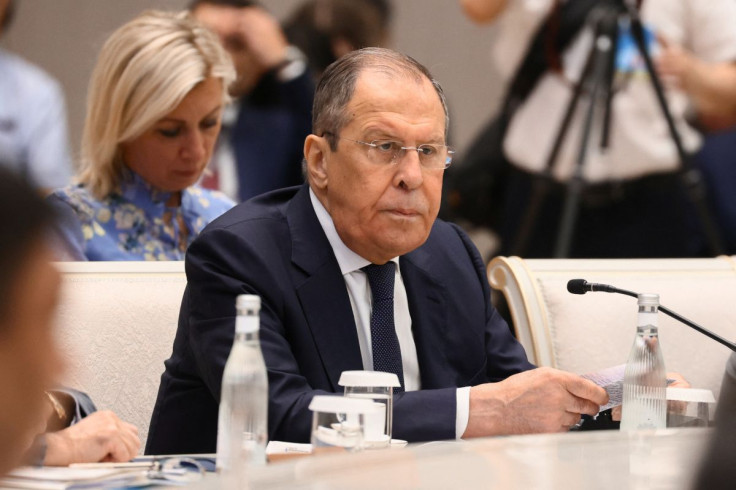Blinken And Russia's Lavrov Have 'Frank' Discussion About Prisoners

U.S. Secretary of State Antony Blinken on Friday held a telephone conversation with Russian Foreign Minister Sergei Lavrov and pressed the Kremlin to accept the 'substantial proposal' that Washington has put forward to secure the release of two Americans detained in Russia.
In their first such conversation since Russia's invasion of Ukraine on Feb. 24, the two top diplomats looked to stick to their existing positions, according to the readout of the call from Blinken and the Russian foreign ministry.
"We had a frank and direct conversation," Blinken told a news conference at the State Department. "I pressed the Kremlin to accept the substantial proposal that we put forth on the release of Paul Whelan and Brittney Griner," he said.
Their discussion came as a source familiar with the proceedings said Russia tried to add convicted murderer Vadim Krasikov to the proposed swap. U.S. officials did not view the idea seriously since Krasikov is in German custody, among other reasons, said the source, confirming a CNN report.
While not getting into the details, the White House National Security Council dismissed the offer.
"Holding two wrongfully detained Americans hostage for the release of a Russian assassin in a third country's custody is not a serious counter-offer. It is a bad faith attempt to avoid the deal on the table that Russia should take," said National Security Council spokesperson Adrienne Watson.
A U.S. official, speaking on the condition of anonymity, said the call lasted about 25 minutes and it was "without polemics and was businesslike."
Lavrov suggested to Blinken that the two sides return to quiet diplomacy on the issue of prisoner swaps.
"Regarding the possible exchange of imprisoned Russian and U.S. citizens, the Russian side strongly suggested a return to the practice of handling this in a professional way and using 'quiet diplomacy' rather than throwing out speculative information," a Russian foreign ministry statement said.
The United States this week announced that it made an offer to Russia, weeks ago, to secure the release of WNBA star Brittney Griner and former U.S. Marine Paul Whelan but did not reveal what it was offering.
A source familiar with the situation said Washington was willing to exchange Russian arms trafficker Viktor Bout, who is serving a 25 year-prison sentence in the United States, as part of a deal.
Families of Americans detained abroad, many of them by some of the top U.S. adversaries, have been increasing pressure on U.S. President Joe Biden, most recently in the case of two-time Olympic gold medallist Griner, who was arrested on drugs charges at a Moscow airport on Feb. 17 and could face up to 10 years in prison.
Earlier in Uzbekistan, Lavrov said talks on prisoner exchanges had been taking place since a summit in Geneva last year where President Vladimir Putin and Biden had agreed to nominate officials to look into the issue.
IMPOSE ADDITIONAL COSTS
Blinken said he also emphasized to Lavrov that the world expected Russia to fulfill its commitments under a deal with Ukraine struck in Turkey to reopen grain and fertilizer exports that have been blocked by war, which is deepening a worldwide food crisis.
"Ambassador Brink, our ambassador to Ukraine, was in Odesa this morning. She confirmed the ships are loaded and ready to go...As I made clear, we're looking to see that move forward as soon as possible," he said.
Lavrov told Blinken that it was the U.S. sanctions that complicated the global food situation.
The top U.S. diplomat also warned Lavrov against going ahead with plans to further annex parts of Ukraine. "The world will not recognize annexations. We will impose additional significant costs on Russia if it moves forward with its plans," he said.
Lavrov said Russia will meet targets of its 'special military operation' in Ukraine - the term Moscow uses to define its invasion of Ukraine, which it says is conducted in self-defense. Ukraine and its allies say the Russian assault is entirely unprovoked.
Lavrov also told Blinken that 'the continuous pumping of U.S. and NATO weapons into the armed forces of Ukraine...only prolongs the agony of the regime in Kyiv prolonging the conflict and multiplying the casualties," according to the Russian foreign ministry.
© Copyright Thomson Reuters 2024. All rights reserved.





















